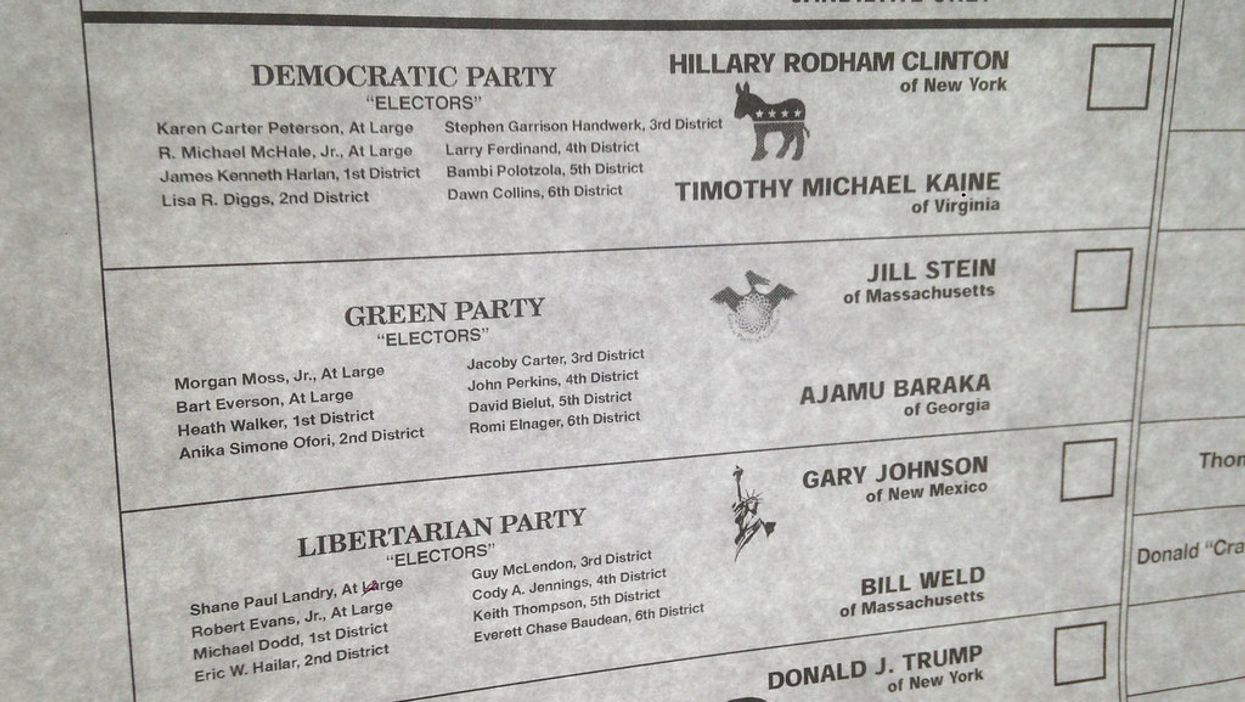Those who say the two-party duopoly is not so great for the republic will not be heartened by developments in New York this week.
Jay Jacobs, the chairman of the Democratic Party in the fourth largest state, is pushing to effectively neutralize almost all of the Empire State's minor political parties. And his proposal seems to have the ear of others on a special commission charged with revising some aspects of election law by the end of the year.
His other ideas for eliminating third parties have not gone far. This one looks like it will.
The new Jacobs plan would increase fivefold, to about 250,000, the number of votes a political party needs to receive in one election in order to get a line on the ballot in the next one. Republicans and Democrats, who routinely draw more than 2 million votes each in statewide contests, are the only parties for which this would be no problem.
The state's Conservative Party has crossed the proposed new threshold several times, but not always, in recent years. But none of the other parties, which are mostly on the ideological left, have come close. (The barrier is about 5 percent of the total vote in a typical governor's race.)
Those who understand Albany say a principal objective of Jacobs, an ally of Gov. Andrew Cuomo, is to neutralize the power of the progressive Working Families Party, which has long been a thorn in the governor's side. But Jacobs, who is on the election law revision commission, says his motive is only to reduce voter confusion and expose the "sham" minor parties led by people who trade nominations for political favors.
"A lot of people have been getting away with an awful lot for a long time," he told The New York Times. "In my mind, it will be better overall if elections are run with only really credible parties."
The nine-member commission was created by the Legislature this spring to design a system under which as much as $100 million in state funds would be spent matching small-dollar donations to candidates across the state. But the public financing plan was not an exclusive mandate, and so the commission has turned to other election law topics, including third parties.
The commission has to make its recommendations next month, and they will automatically become law unless they are changed or spiked by the Legislature within three weeks.
Virginia and New Jersey require parties to win 10 percent of turnout in the most recent governor's race to keep a place on the ballot — vestiges of when both were under the control of Democratic machines. In Alabama, where the goal was to protect the dominance of the Republican Party from insurgent moves by hard-right splinter parties, the threshold is 3 percent. Texas this year actually lowered its threshold for viable third parties to 2 percent from 5 percent of the statewide vote.




















Marco Rubio is the only adult left in the room